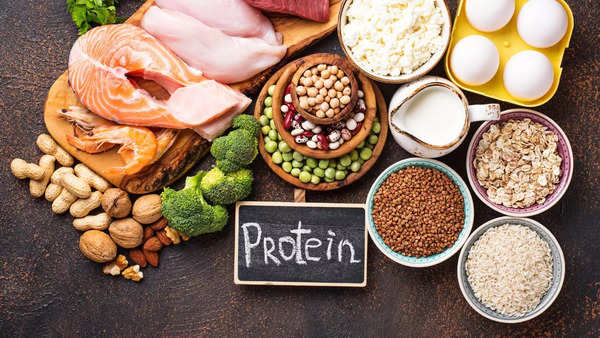India faces a growing challenge with obesity and related non-communicable diseases. In response, the Indian Council of Medical Research (ICMR) had released the latest edition of the Dietary Guidelines for Indians back in 2024. These guidelines aim to tackle the rising rates of unhealthy diets and their consequences. Doctors at the All India Institute of Medical Sciences (AIIMS) addressed the media, emphasising the critical need for dietary changes to combat obesity.
Delhi Election Results 2025
They highlighted that many Indians aren’t eating enough pulses, fruits, and vegetables, which are essential for good health.
The alarming reality of unhealthy diets
As Dr. Parmeet Kaur, Chief Dietician at AIIMS, pointed out (via Financial Express), “Indians are consuming more foods that they shouldn’t eat and this has led to an increase in diseases associated with unhealthy diets. 56 percent diseases of India are associated with unhealthy diet and obesity is a growing burden not just in India but also globally too”.

Key dietary deficiencies
The doctors emphasised that the intake of essential food groups such as pulses, fruits, and vegetables is notably low among Indians. This deficiency contributes to a lack of vital nutrients necessary for maintaining good health. National Nutrition Monitoring Bureau (NNMB) surveys indicate that the daily consumption of pulses and legumes is less than 50% of the Recommended Dietary Allowances (RDA). Similarly, the intake of green leafy vegetables and other vegetables, which are rich in micronutrients, is grossly inadequate.
Importance of Protein
Dr. Kaur stressed the importance of increasing protein intake, recommending foods like sprouts, which are rich in Vitamin C, B complex, zinc, and selenium. She also advised increasing the consumption of milk and milk products. While plant-based diets can be healthy, they often lack sufficient vitamin B12, which is predominantly found in animal products.

Fats, fruits, and vegetables: Balancing the diet
According to Dr. Kaur, a fat intake of up to 30% of total calorie intake is advisable. She also underscored the need to increase the intake of fruits and vegetables to 400 grams per day. There is plenty of evidence which suggests that intake of more than 4 servings of fruits and vegetables helps with weight loss. High intakes of low-calorie vegetables and fruits can lead to reducing calories in the diet and aiding obesity management.
Dr. Kaur warned against the dangers of overconsumption of oil and the need for moderation. She advised consumers to be wary of misleading marketing tactics and to learn how to read food labels. She also emphasised the dangers of fad diets for weight loss, reminding that a balanced diet and regular exercise are the keys to a healthy lifestyle.
Dietary diversification: Key to a healthy lifestyle
Dr. Monita Gahlot stressed that people need to include all food groups in their diet to stay healthy. “Diet diversification is extremely important. Your diet should include fruits and vegetables, grains, protein, dairy and healthy fats,” she said. She also highlighted the importance of incorporating aerobic exercises and strength training into daily routines.
ICMR’s dietary guidelines
The 17 dietary guidelines from the ICMR aim at meeting the requirement for essential nutrients and preventing non-communicable diseases. Nutrition guidelines encompass different aspects of nutrition, such as:
- Eating a variety of foods to ensure a balanced diet.
- Ensuring adequate diets for children and adolescents.
- Eating plenty of vegetables and legumes.
- Using oils and fats in moderation.
- Obtaining good quality proteins.
- Adopting a healthy lifestyle to prevent obesity.
- Being physically active and exercising regularly.
- Restricting salt intake.
- Consuming safe and clean foods.
- Minimising the consumption of ultra-processed foods.
- Prioritising nutrient-rich foods for the elderly.
- Reading information on food labels.
The guidelines also emphasise the importance of breastfeeding for infants, appropriate complementary feeding after six months of age, and the need for pregnant women and new mothers to have access to extra food and healthcare.
Why education and awareness is crucial?
Dr. M. Srinivas, Director of AIIMS Delhi, stressed the importance of educating children about the impact of consuming junk food and the significance of a balanced diet. He highlighted the need to understand malnutrition, healthy diets, and the effects of unhealthy eating habits on various organs By promoting healthy lifestyles, the goal is to help people live longer and healthier lives.
The call for dietary diversification and a balanced approach to nutrition is crucial in addressing the rising rates of obesity and diet-related diseases in India. By following the ICMR’s dietary guidelines and making informed food choices, individuals can take proactive steps towards improving their health and well-being.







